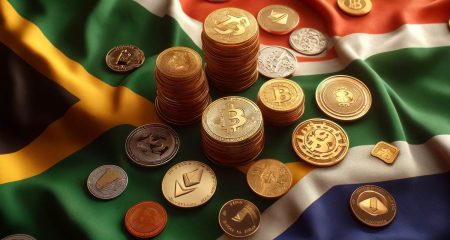
[dropcap]T[/dropcap]he Reserve Bank cut borrowing costs for the first time in five years as inflation eased to a 19-month low and the economy suffers through the second recession in almost a decade.
The Monetary Policy Committee reduced the benchmark repurchase rate by 25 basis points to 6.75%, governor Lesetja Kganyago told reporters Thursday in Pretoria, adding that the nation’s growth outlook remains a concern. Four of the MPC’s six members voted for the reduction.
The key lending rate had remained unchanged since March last year after the central bank added 200 basis points to the rate since 2014 to bring prices growth into the bank’s target range.
Slow GDP expansion due to weak demand for locally made goods by South Africa’s export partners and a spate of political scandals have complicated the task of the central bank, which is fighting off a challenge to its mandate by the anti-graft ombudsman.
“There is sufficient cushion in the forecast profile for inflation to withstand some renewed currency weakness, which would not be triggered by a cut,” Carlos Teixeira, an economist at Credit Suisse Securities, said in an e-mailed note before the release of the data.
“We acknowledge that recent developments regarding the Reserve Bank’s mandate — and the continued risk of further credit downgrades — are of concern, but the risk of a renewed contraction in GDP is also high.”
Slow growth, failure to improve governance at state-owned companies and a shock cabinet shuffle saw two ratings companies downgrade South Africa’s foreign debt to junk in April.
Public protector
The public protector instructed lawmakers to start a process to amend the nation’s constitution to make the Reserve Bank focus on the “socioeconomic well-being of the citizens” rather than inflation. The lender has asked the courts to review and set aside the instruction, and the ombudsman isn’t challenging the application.
The bank expects inflation to remain within the target band of 3-6% until at least the end of 2019. It lowered the forecast for average price growth this year to 5.3% from 5.7%. Inflation will average 4.9% in 2018.
The currency weakened 0.6% to R12.99/US$ by 3.21pm in Johannesburg on Thursday. Yields on rand-denominated government bonds due in December 2026 fell 13 basis point to 8.51%, the lowest since 26 June.
South Africa’s economy expanded 0.3% last year, the lowest rate since 2009. The MPC reduced its forecast for growth this year to 0.5% from 1%, and trimmed the outlook for 2018 to 1.2% from 1.5%. — Reported by Arabile Gumede and Amogelang Mbatha, (c) 2017 Bloomberg LP




